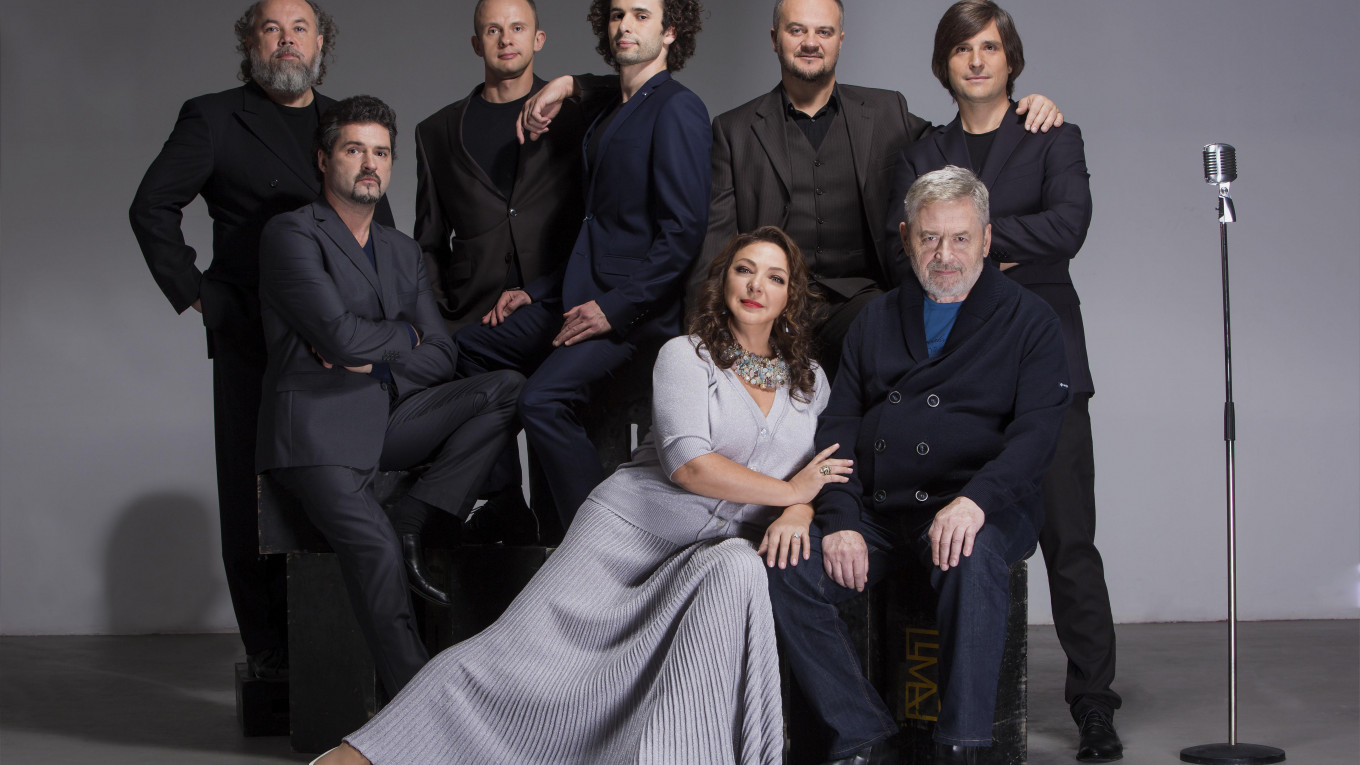Dressed in brightly colored but shapeless garments, a man and a woman sit on stage facing each other. After a pause, they start singing. The song has no words. It doesn’t even have music. It consists of loud and quiet sounds accompanied by a piano: church chants meet spirituals, combined with throat singing and avant-garde music.
“I would call it ‘free vocal.’ It is like ‘freestyle,” the singer, Igor Kalinauskas told The Moscow Times.
A Winding Path
With his trim beard and open-neck shirt, Kalinauskas looks like a European opera singer, but he is no ordinary musician.
A theater director by training, Kalinauskas staged more than a dozen plays in various theaters in Russia and Belarus during the Soviet period. Along the way, however, he was drawn to psychology and yoga practices as well as Sufism, a mystical order of Islam, and tried to create his own methods of teaching from all those practices.
Eventually he was forced to leave his theater job. His interest in esoteric practices was not welcomed by the Soviet cultural orthodoxy, nor was his work as a massage therapist in Kiev or his psychological assistance to the firefighters who cleaned up after the 1986 Chernobyl atomic plant disaster.
Like old Sufi masters before him, Kalinauskas began to experiment with his voice to sing without music or accompaniment. His experiments attracted the attention of his theater student Olga Tkachenko, whom he’d met in Kiev.
Their experimentation with different singing techniques led Kalinauskas — who uses the stage name of Silin, his mother’s maiden name — to found the Zikr Duo with Tkachenko. The word ‘zikr’ means a form of devotion in Sufism.
While traditional throat singing is common in many parts of the world, including Russia, Silin created his own singing method inspired by Sufi philosophy.
He was 50 when he began to sing because he was interested in “the possibilities of the human voice.” Now he is 73 and still active. In addition to his singing and performances he has written several books on esoterica and paints both portraits and abstract art.
International Fans
The duo, which turns 25 this year, has attracted almost a cult following among fans in both Russia and Europe. The duo has also collaborated with many Russian musicians, including the late avant-garde musician Sergei Kuryokhin and Russia’s rock guru Boris Grebenshikov.
Billboard magazine called a Duo Zikr performance an “astonishing attraction.”
Zikr even received praise from the late cellist Mstislav Rostropovich and opera singer Galina Vishnevskaya, who attended one of their concerts. “Rostropovich said that he liked our performance, but he said that some people will say that they don’t consider it music and we should be ready for that. But he said if we believe in what we are doing, we have to keep going, no matter what,” Kalinauskas said.
The Zikr Duo performs in Moscow and other Russian cities, but diehard fans may want to go to Berlin for their next concert on April 3. Tickets are available at this site, along with more information about the event.
A Message from The Moscow Times:
Dear readers,
We are facing unprecedented challenges. Russia's Prosecutor General's Office has designated The Moscow Times as an "undesirable" organization, criminalizing our work and putting our staff at risk of prosecution. This follows our earlier unjust labeling as a "foreign agent."
These actions are direct attempts to silence independent journalism in Russia. The authorities claim our work "discredits the decisions of the Russian leadership." We see things differently: we strive to provide accurate, unbiased reporting on Russia.
We, the journalists of The Moscow Times, refuse to be silenced. But to continue our work, we need your help.
Your support, no matter how small, makes a world of difference. If you can, please support us monthly starting from just $2. It's quick to set up, and every contribution makes a significant impact.
By supporting The Moscow Times, you're defending open, independent journalism in the face of repression. Thank you for standing with us.
Remind me later.






